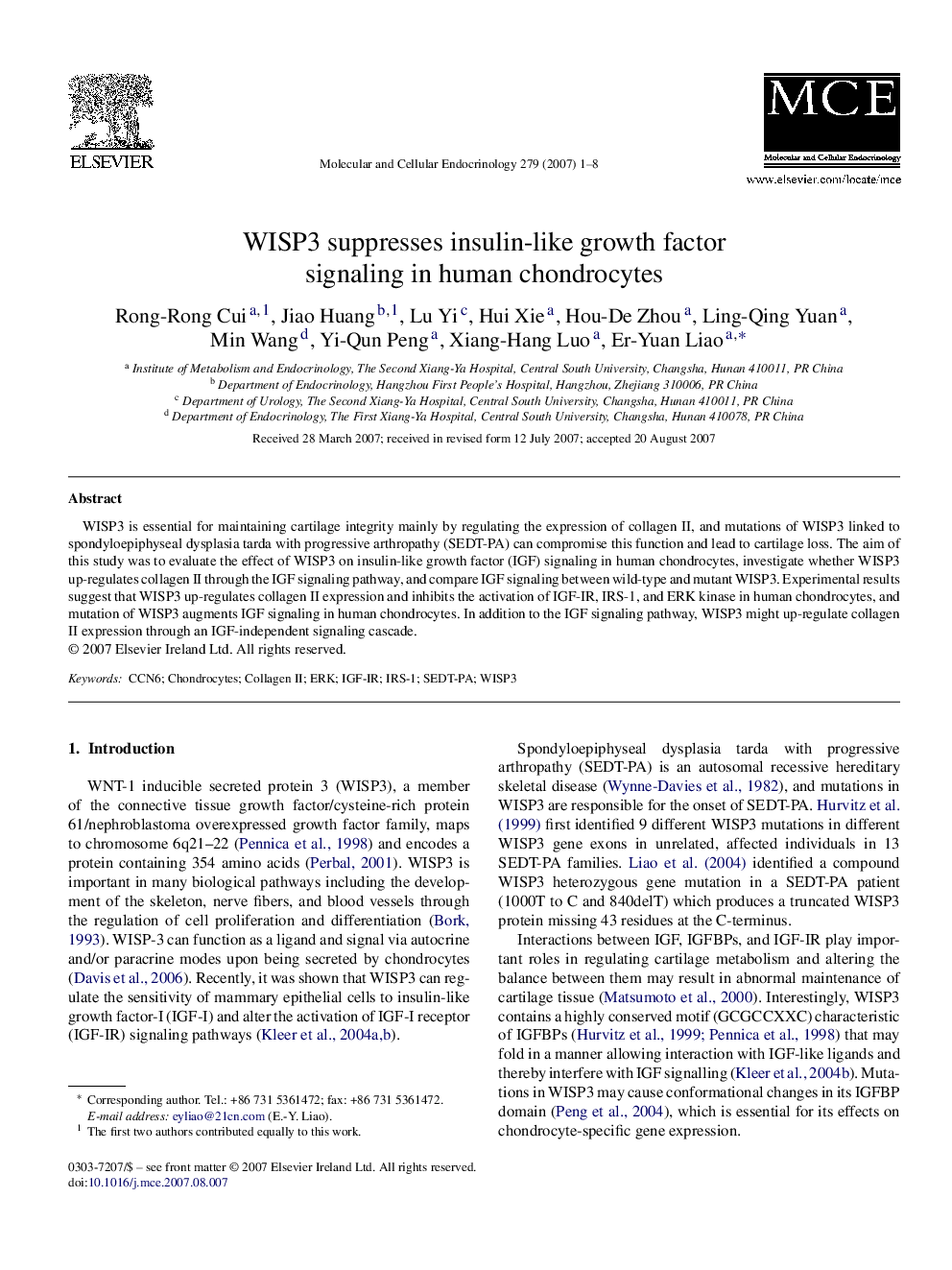| Article ID | Journal | Published Year | Pages | File Type |
|---|---|---|---|---|
| 2197791 | Molecular and Cellular Endocrinology | 2007 | 8 Pages |
WISP3 is essential for maintaining cartilage integrity mainly by regulating the expression of collagen II, and mutations of WISP3 linked to spondyloepiphyseal dysplasia tarda with progressive arthropathy (SEDT-PA) can compromise this function and lead to cartilage loss. The aim of this study was to evaluate the effect of WISP3 on insulin-like growth factor (IGF) signaling in human chondrocytes, investigate whether WISP3 up-regulates collagen II through the IGF signaling pathway, and compare IGF signaling between wild-type and mutant WISP3. Experimental results suggest that WISP3 up-regulates collagen II expression and inhibits the activation of IGF-IR, IRS-1, and ERK kinase in human chondrocytes, and mutation of WISP3 augments IGF signaling in human chondrocytes. In addition to the IGF signaling pathway, WISP3 might up-regulate collagen II expression through an IGF-independent signaling cascade.
